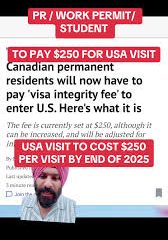Understanding the Skilled Worker Visa Immigration Rules in the UK

Introduction
The skilled worker visa is a crucial pathway for foreign workers looking to contribute to the United Kingdom’s economy. Introduced in December 2020, this visa type allows organisations in the UK to attract and employ skilled workers from around the world to fill job vacancies that cannot be met by the local labour market. Understanding the immigration rules surrounding the skilled worker visa is vital for both potential migrants and employers who wish to harness global talent.
Key Immigration Rules
To qualify for a skilled worker visa, applicants must meet several requirements. Firstly, they need to have a job offer from a Home Office-approved employer. The job must be at least of RQF Level 3, equivalent to A-levels, and the salary must meet a certain threshold, usually a minimum of £26,200 per year or the ‘going rate’ for the specific occupation, whichever is higher.
Another critical factor is the English language proficiency; applicants must demonstrate their ability to communicate effectively in English, which can be proven through various means, including coursework or standardised tests. The visa is designed to fill skills shortages in various sectors, including health and social care, engineering, and information technology.
Recent Developments
As of October 2023, the skilled worker visa system continues to evolve. Recently, the Home Office indicated plans to streamline processing times and reduce bureaucracy to attract more skilled workers post-Brexit. Furthermore, there has been discourse around adjusting salary thresholds to ensure competitiveness in the global job market.
Additionally, sectors facing acute skill shortages may see temporary adjustments to requirements, making the system more flexible for both employers and prospective immigrants. The government also continues to hold engagement sessions with industry stakeholders to refine these immigration rules further.
Conclusion
The skilled worker visa immigration rules play a pivotal role in shaping the workforce landscape of the UK. For potential migrants, staying abreast of these regulations is essential to maximise their chances of securing employment and successfully relocating. For employers, understanding the rules aids in planning staffing needs and tapping into the global talent pool. As the UK continues adapting its immigration framework, these rules will remain significant for maintaining an innovative and productive economy.









